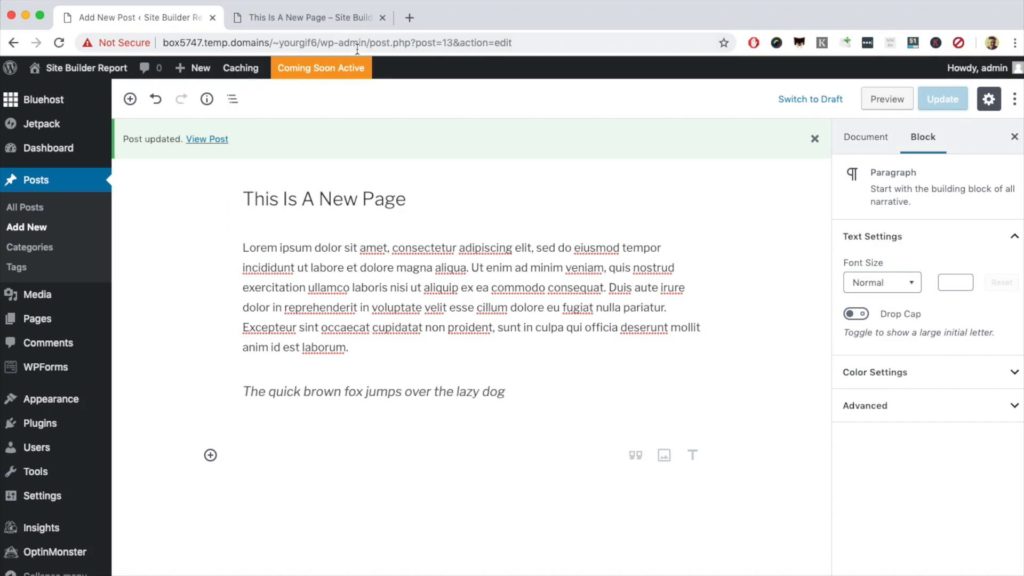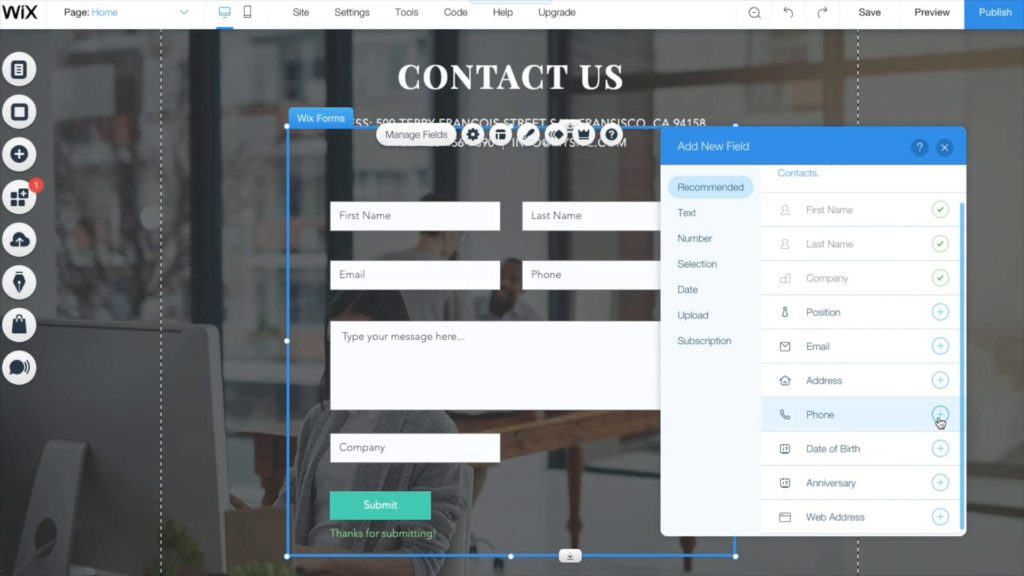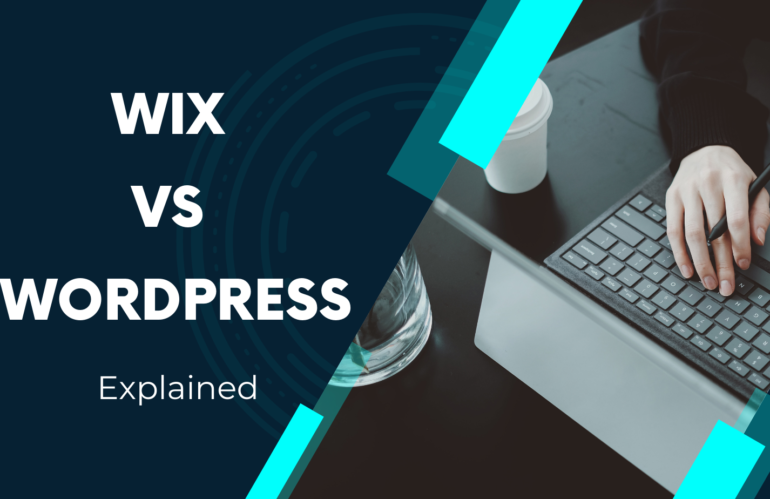Six important differences to understand before deciding between Wix and WordPress.
WordPress and Wix are both tools for erecting a website — but they’ve fully different approaches Wix is a website builder and WordPress is a CMS (or Content Management System). Understanding this difference is critical in deciding which to choose.
To generalize, website builders like Wix are easier to use but lower customizable. They also include hosting — so you don’t have to set up a web host — but that means you can’t ever move your website off of Wix and on to a new web host.
Website Builders vs CMS
A CMS like WordPress has a steeper literacy wind but is largely customizable. You need to set up WordPress on a web host — though that’s less intimidating than it sounds (there is a plenitude of hosts offering 1-click WordPress installation). WordPress is open-source, which means it’s free for anyone to use and modify (though hosting, themes and plugins can all bring plutocrat).

I’m just scratching the face of the differences — as you’ll see in the rest of this composition, the difference between Wix and WordPress manifests itself in templates, hosting, features, client support, and much further.
Just remember Wix vs WordPress isn’t an ideological debate — there’s no right or wrong answer. Rather, the tool should match the need — let what you’re erecting guide your decision.
Note This composition is aboutWordpress.org — notWordpress.com.Wordpress.com is a separate service that’s more like a website builder and is entirely different.
The Editor in Wix and WordPress
WordPress Gutenberg editor is abstracted down from the runner — it doesn’t show the full runner within the editor (for illustration, you don’t see the title, sidebar, and footer). Because of this, you’ll still find yourself switching between the editor and the published website to see how published runner looks
.

By discrepancy, utmost effects in Wix are edited visually. However, you click it and change it, If you see commodity. The website stays within view and changes be as you make them. For illustration, creating an Overall, WordPress’s interface is frequently more cluttered than Wix — but this comes at no surprise. WordPress is more sophisticated than Wix and more sophisticated software needs to be more utilitarian and abstract.
Wix aspires to friendlier runners. As website builders go, Wix is more cluttered than Squarespace or Weebly — but they’re surely more friendly than WordPress.form is done within the runner editor

Overall, WordPress’s interface is frequently more cluttered than Wix — but this comes as no surprise. WordPress is more sophisticated than Wix and more sophisticated software needs to be more utilitarian and abstract.
Wix aspires to friendlier runners. As website builders go, Wix is more cluttered than Squarespace or Weebly — but they’re surely more friendly than WordPress.
Wix vs WordPress
Open vs Closed on Wix and WordPress
WordPress is an open-source CMS — which means anyone can contribute to it. This is a major strength but also a weakness.
One advantage is that WordPress has a huge quantum of plugins and themes that were created by the open-source community. At the time of jotting, there were plugins onWordpress.org and themes on Themeforest. That’s way, way further than any website builder has.

But the breadth of WordPress is also what can make it a hot mess. WordPress backends can get notoriously confusing. There can be long, specialized settings runners and language can frequently get abstract and slangy.
Plus taking advantage of WordPress’s numerous themes and plugins noway relatively works impeccably. Incompatibilities frequently arise and getting the fix can bear druggies to make tweaks to law — a commodity not everyone is comfortable doing. All you have to do is browse plugin reviews to get a sense of the frustration

Wix is fully different. They offer an App Request that seems analogous to WordPress’s plugins — but is really not. It’s a small, curated collection of 300ish apps — not indeed close to matching the huge library of WordPress plugins. But unlike WordPress, Wix checks all apps for comity — so you can be confident they’ll integrate impeccably (there are infrequently any comity issues or need to tweak law).
The same thing is true with themes. Wix has around 500 themes which is lower than WordPress … but all the themes work out of the box — there’s no need to tweak the law. (Plus Wix’s visual theme editor is so customizable that you could design your own theme from scrape right from the launch.)
Features
Still, you’ll presumably find Wix offers everything you need If you’re erecting a website with conventional features. However, you’ll presumably be suitable to find a WordPress theme or plugin that supports it, If you need unconventional features.
Which begs the question what’s a conventional point and what’s unconventional? Well, a print gallery is a conventional point. Wix has a plenitude of print gallery options. But if you want a print gallery that scrolls horizontally ( left to right), you wouldn’t be suitable to do it on Wix. That’s too unconventional. But you could find a WordPress plugin to do it.
The strength of WordPress is the diversity of its ecosystem plugins and themes. This means that if you have a specific point or look in mind, WordPress can presumably accommodate it. Then are many exemplifications
bbPress integrates with the WordPress stoner system so you can add discussion forums to your website.
Buddypress converts your WordPress website into a social network.
Yoast SEO is a monstrously popular SEO plugin that adds XML sitemaps, canonical URLs, meta title and description templates, and further.
Redirection lets you manage 301 runner redirects.
Advanced Custom Fields is like a full-fledged database creator.
Tablepress lets you produce tables in a spreadsheet-suchlike interface (you can indeed add formulas).
TinyMCE changes the WordPress post editor into a TinyMCE editor.
My point is that you can find WordPress plugins for all feathers of features. Wix will noway be suitable to support as numerous features.
But if you just need conventional features, I’d recommend Wix.
Conventional websites aren’t trying to re-invent the wheel. They’re the typical websites for caffs, non-profits, shutterbugs or any small business. They need print galleries, contact forms, Google Charts — but not nothing too unusual.
Wix covers all these features — and they frequently make it easier than WordPress. For illustration, if you search for “ print gallery plugins”, WordPress literally has hundreds of results. How are you supposed to know which one is right? With Wix, there’s none of that searching. Wix includes one excellent print gallery, so you can just get up and running snappily.

And indeed though Wix doesn’t offer as numerous features as WordPress, the features they do offer just work. You won’t lose the afterlife to trying different plugins to see which one is compatible with your theme.
Themes
Wix offers 500 themes — a good quantum for a website builder, but nowhere near WordPress which has over themes.
Like plugins, WordPress has a wider selection, but you’ll sometimes run into comity issues that will bear you to debug with law. Wix has a lower selection but you’ll noway run find a theme that requires to mess with the law to be compatible with Wix features.

Theme customization in WordPress is done through Customizer a nice tool that lets you click rudiments to reveal style options or browse on and make style customizations.
Wix has a fully different approach. Wix rudiments can be seized and moved. Rudiments can be named and you can make customizations on the cover.
Pricing in Wix and WordPress
It’s hard to compare Wix and WordPress pricing because they’re priced fully else.
Wix includes everything in one package hosting, eCommerce, themes, apps, client support — these are all included in every Wix package. (Some apps on the Wix App Store do bring plutocrat — but nearly all are free.)

WordPress is different in that the WordPress core is free. But you could end up paying for themes, plugins, and hosting.
For illustration, BlueHost charges$7.99/ month for WordPress hosting. An ultra-expensive theme from ThemeForest could bring$ 39 (though you get it for life, and free WordPress themes are also available).
Also, there are ultra-expensive WordPress plugins. WooCommerce is an eCommerce plugin but it sells extensions ( going between$ 0-$ 299) that add specific features (for illustration, a UPS Shipping Method extension costs$ 79 and lets you get UPS shipping rates). WPForms is a drag-and-drop WordPress form builder that starts at$ 40/ time.
Customer Support
Wix includes phone, converse, and dispatch client support in all of their packages — and in the more precious plans, you can get Personality Support which lets you skip the line.
Because WordPress is free and open-source, they don’t include client support — however hourly if you pay for a theme or plugin, the generators will include support as part of the cost ( support is limited to their theme or plugin of course).
For more Detail; https://en.wikipedia.org/wiki/Wix.com and https://en.wikipedia.org/wiki/WordPress







